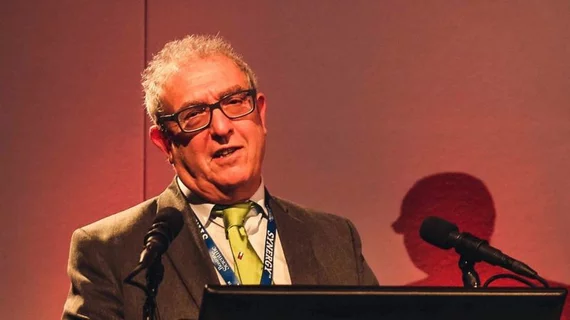Revered cardiologist dies from COVID-19
Anthony Gershlick, MD, a beloved cardiologist with decades of experience in the field, died Friday, Nov. 20, from complications related to COVID-19. He was 69 years old.
Gershlick was a consultant cardiologist at England’s Glenfield Hospital and a professor of interventional cardiology at the University of Leicester, also in England. He was a respected academic, taking part in influential research throughout his career, and received the British Cardiovascular Intervention Society Lifetime Achievement Career Award in 2017.
The University of Leicester shared news of Gershlick’s passing, along with touching tributes from a variety of colleagues, in a statement on the school’s website.
“Tony Gershlick was an extremely dedicated and well-regarded member of our staff who has left an indelible mark on the life of the university,” said Nishan Canagarajah, the school’s president and vice-chancellor. “His work has led to a positive change in his field. He will be remembered with great affection by all and will be sorely missed. My deepest condolences go out to Tony’s family at this time.”
“This is devastating news for us all at Leicester’s Hospitals,” added Rebecca Brown, acting chief executive for Leicester’s Hospitals. “Tony was a much-loved member of the team who will be missed greatly by everyone who knew him.”
To celebrate Gershlick’s memory, a minute of silence has been planned for Monday, Nov. 23, at 11 a.m.

